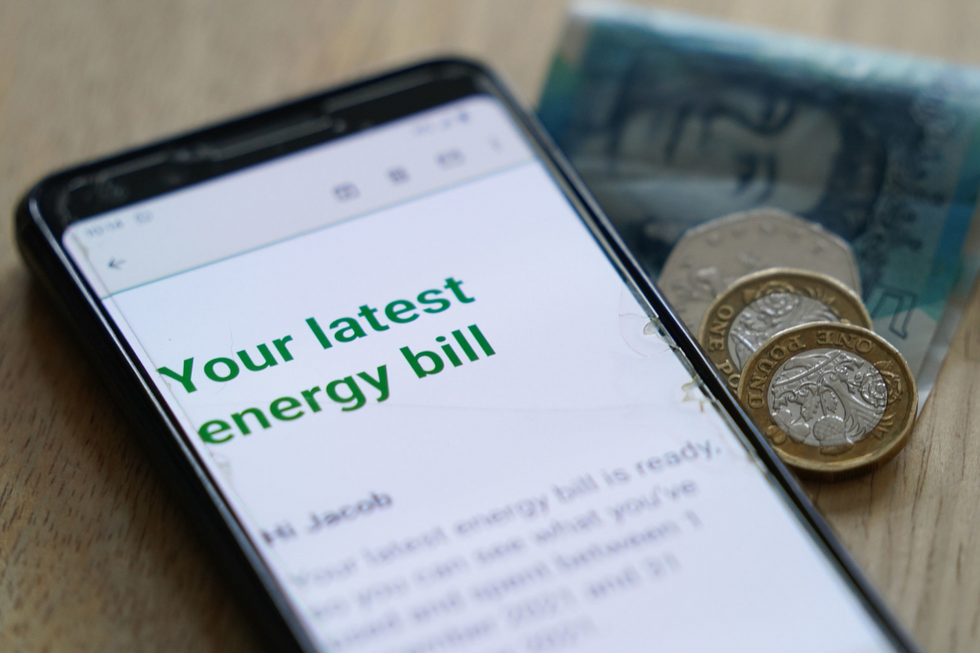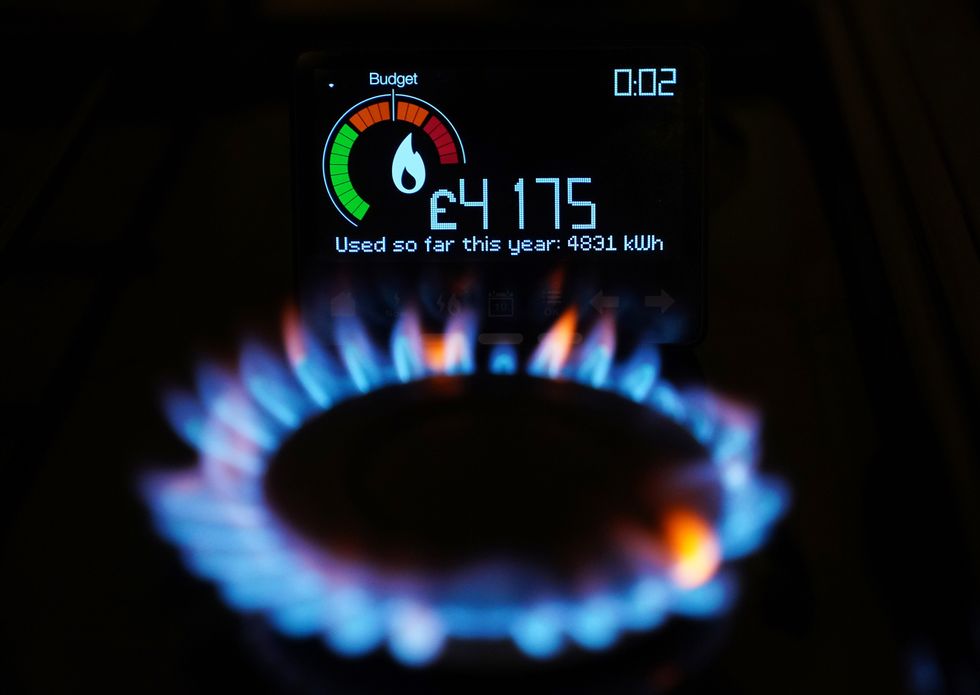Sir Keir Starmer and Ursula von der Leyen speak at energy security summit
GBNEWS
Experts are now urging customers to check their accounts and consider requesting refunds as energy prices remain high
Don't Miss
Most Read
Trending on GB News
Millions of households could be owed hundreds of pounds by their energy supplier - but many have no idea.
Experts are now urging customers to act fast as fresh warnings emerge about growing hidden credit balances.
Millions of UK households are sitting on a staggering £3bn in unused energy credit, according to new research from Uswitch.
The average household is holding nearly £200 in credit on their energy accounts. This substantial sum has accumulated as consumers continue to pay fixed monthly direct debits while their actual energy usage fluctuates.
The unclaimed credit effectively means consumers are "lending money" to their energy suppliers at a time when many families are struggling with the cost of living.
This credit often builds up during warmer months when energy usage naturally decreases, yet monthly payments remain unchanged. The system is designed to spread costs evenly throughout the year, but can lead to significant overpayment.

Millions of UK households are sitting on a staggering £3bn in unused energy credit
GETTYAround 15 million households are currently in credit with their energy suppliers. Some customers are holding over £300 or even £500 in their accounts. Despite this, only 31 per cent of consumers plan to request a refund of their own money.
Gordon Wallis, renewable energy expert at heating oil supplier Your NRG said: "Many customers don't realise they're effectively lending money to their energy supplier."
With winter now over but bills remaining high, it's an ideal time to review account balances.
He added: "If you've been in credit for more than a month and your meter readings are up to date, you are well within your rights to request a refund. This is your money, and with energy prices remaining elevated, it's worth checking whether your direct debit is set too high."
Consumers should take control of their payments, particularly if their usage has dropped significantly. The substantial credit balances represent funds that could help ease financial pressure during the ongoing cost-of-living crisis.

Energy suppliers are essentially holding onto customers' money that could be better used elsewhere in tight household budgets.
GETTYEnergy suppliers are essentially holding onto customers' money that could be better used elsewhere in tight household budgets.
Taking action to reclaim these funds could provide immediate financial relief to millions of families. The research reveals notable regional differences in credit balances across the UK.
Edinburgh households hold the highest average credit at £224. In contrast, Belfast residents have the lowest average balance at just £127.
The type of payment plan also influences credit accumulation. Households on fixed deals were shown to be more likely to be in credit (63 per cent) compared to those on standard variable tariffs (51 per cent).
Wallis added: "We often recommend fixed payments for budgeting purposes, but they do require occasional review. If your energy use has fallen but your monthly payments haven't been adjusted, you could end up overpaying significantly throughout the year."

Taking action to reclaim these funds could provide immediate financial relief to millions of families
PAFixed direct debits, while helpful for budgeting, require more vigilant monitoring to prevent excessive credit build-up. Energy experts recommend submitting regular meter readings to avoid estimated bills, which can inflate charges.
If one's supplier refuses a refund, they could face fines under Ofgem rules.
Wallis explained: "Simple steps like checking your credit balance, updating your meter readings, and adjusting your monthly payment to reflect actual usage can help keep your bills fair and manageable."
He adds: "And if your supplier isn't playing ball, don't be afraid to challenge it. The system should work for you not the other way around."
Consumers should review their accounts regularly, especially after winter when credit is most likely to have accumulated. Taking these simple actions could help households reclaim hundreds of pounds during challenging economic times.







